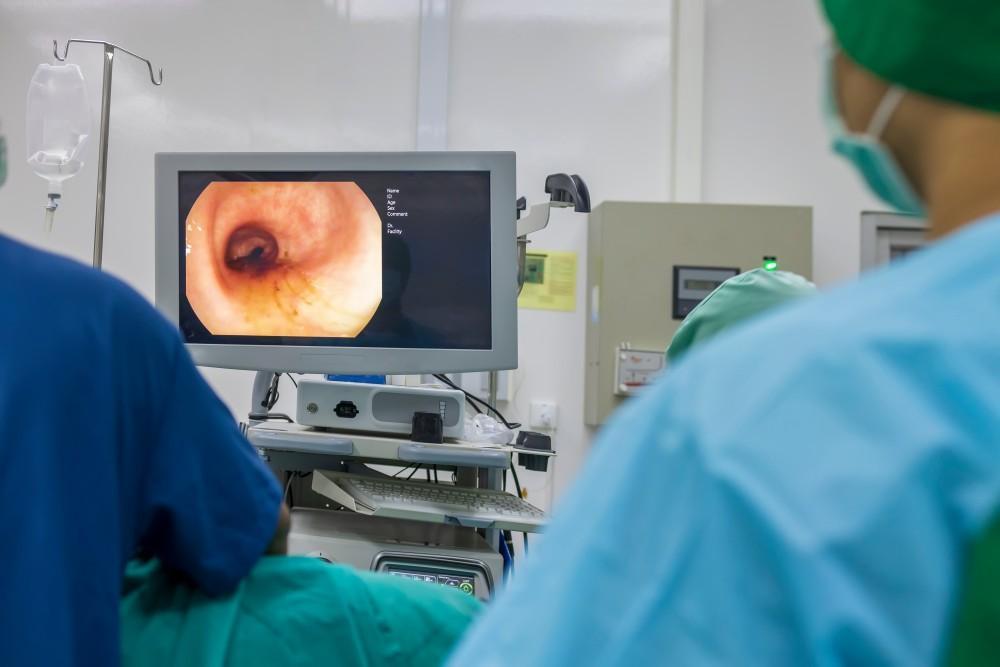
Who's at Risk for Colon Cancer?

Colorectal cancer is the third-leading cause of cancer deaths in adults in the United States, excluding skin cancers. You have about a 4.0% chance of developing colon cancer at some point in your life if you’re a woman, and a 4.3% chance if you’re a man.
While 4-4.3% doesn’t sound like much, that means that one out of every 23-25 people will develop colon cancer. Every year, more than 50,000 people in the US die from the disease.
Even though deaths from colon cancer have dropped in older women and men during the past few decades (thanks to increased screening and early treatment), more young people are developing the disease. Colorectal cancer deaths among people younger than 55 increased 1% per year from 2008-2017.
The colorectal experts at Colon and Rectal Surgeons of Greater Hartford want to help lower your risk for colon cancer and death through early detection and screening, including colonoscopy. Below is information that helps you determine your individual risk as well as your screening recommendations.
Are you at average risk?
Everyone’s at risk for colon cancer, especially as they age. You’re considered at average risk for colon cancer if you don’t have a personal or family history that would put you into an increased or high-risk category, such as:
- Prior colon cancer
- Certain kinds of colon polyps
- Family history of colorectal cancer
- Inflammatory bowel disease (IBD)
- Prior radiation to the pelvic area
- Confirmed or suspected hereditary colon cancer syndrome
In the absence of the above factors, you should start screening for colorectal cancer by age 45. You can opt for a stool-based test every 1-3 years, a sigmoidoscopy every five years, a CT colonoscopy every five years, or a colonoscopy every 10 years.
Are you at increased risk?
If you’re at increased risk for colorectal cancer, you should start your screening before you turn 45. Following are the factors that put you into the increased-risk category.
You had polyps removed on prior colonoscopy
Depending on the type, number, and size of polyps found, you may need to undergo colonoscopy more frequently than an average-risk person. A repeat colonoscopy is usually recommended at about three years, but can be sooner or later than that, depending on the findings.
You or a family member have a history of colorectal cancer
If you had prior cancer in your colon or rectum, you need to schedule regular colonoscopies about one year after your surgery. If a family member had colorectal cancer, that increases your risk and may also change the frequency of your colonoscopy recommendations. A stool test isn’t recommended in this case..
You underwent pelvic radiation for a prior cancer
If you underwent radiation therapy to the pelvic area to treat another type of cancer, you need to start screening for colon cancer either five years after the radiation therapy, or by age 30. Although you can choose either a stool test or colonoscopy, you must be screened more often than someone at average risk.
Are you at high risk?
If you have any type of IBD, including ulcerative colitis and Crohn’s disease, you’re at high risk for colorectal cancer. You should undergo colonoscopy only, and should start within eight years of your IBD diagnosis. You should get repeat colonoscopies every 1-3 years.
Colonoscopies are also the only screening type appropriate for people of any age who have confirmed or suspected genetic syndromes associated with colorectal cancer, such as familial adenomatous polyposis (FAP) or Lynch syndrome. Even teenagers with a family history of genetic syndromes may need to be screened.
If you’re not sure whether your risk is average, increased, or high, or if it’s time for your colonoscopy, call us at 860-242-8591. We have locations in Bloomfield, South Windsor, and Plainville, Connecticut. You can also book online at the office nearest you.
You Might Also Enjoy...


How a Colonoscopy Can Save Your Life

4 Signs You May Have Pilonidal Disease

Start the New Year Fresh with a Colonoscopy

5 Tips for Managing Your Crohn's Disease During the Holidays


